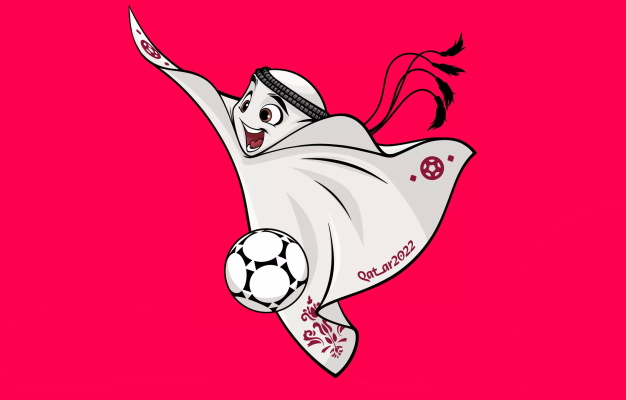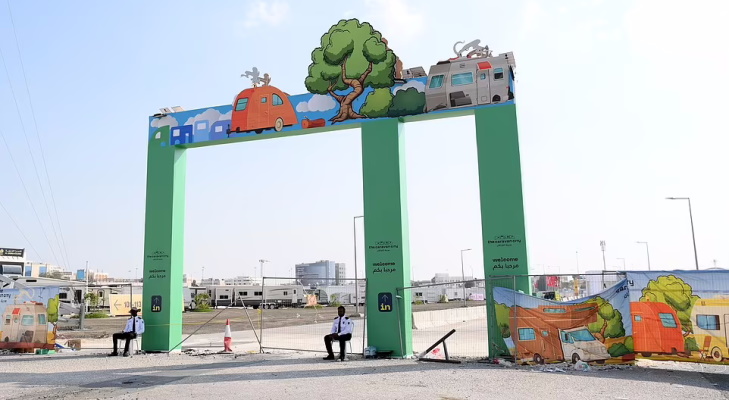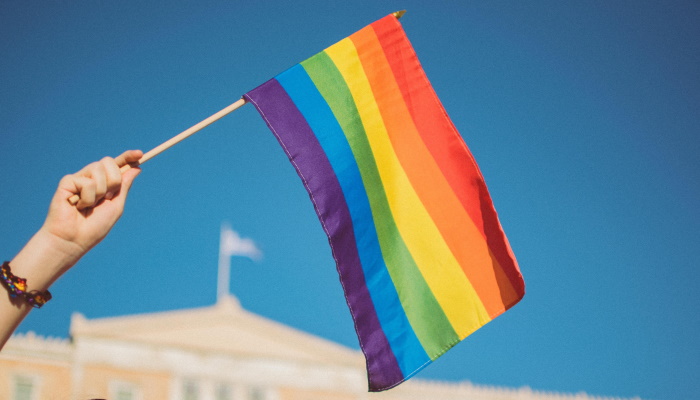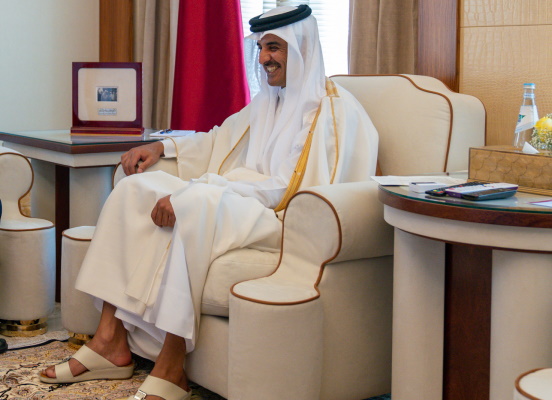“Put up or shut up,” “put your money where your mouth is,” and other similar phrases and sayings all have the same meaning: stand by your principles. And that’s what I shall be doing when it comes to the football World Cup, which kicks off in the nation of Qatar in less than 24 hours’ time. I won’t be tuning in to watch a single minute of football at a World Cup for the first time in my life, having cheered on England at every tournament (that they qualified for, at any rate) for literally as long as I can remember. But I can’t support the decision to send the World Cup to Qatar.
In my view, England, Wales, and any other footballing nation with a conscience should have officially boycotted the tournament, and made their intentions plain in that regard months if not years ago. All of this talk of a “political boycott” – in which senior government officials refuse to attend but the football team still goes and plays – is utterly meaningless and hypocritical. Either go to the World Cup and say that “sport and politics should be wholly separate,” or stand by your principles. The FA and UK government want to have their cake and eat it; to criticise Qatar while simultaneously attending the World Cup. But it doesn’t work that way.

Image Credit: Football Association
Qatar should never have been in serious contention to host a tournament like the World Cup in the first place, and despite an internal “investigation” in which FIFA cleared itself of any wrongdoing, let’s not pretend that the decision to award the World Cup to Qatar back in 2010 was anything other than corrupt. Qatar schemed, cheated, and bribed their way to hosting this tournament, and while they’re certainly not the only nation to have bought and paid for a major event (looking at you, Salt Lake City) the sheer brazenness of the bribery and corruption in this case was enough to turn off fans right from the start.
Qatar is simply not a place well-suited to play football. Setting aside the searing desert temperatures that, even at this time of year, can cause health problems, it’s a tiny place which in 2010 had a single football stadium that everyone agreed was unsuitable for hosting games at this level. Qatar pledged to build eight new stadia in time for the World Cup… and that’s where the problems began.

At least 6,500 people have died building these eight stadia over the past twelve years. Let’s repeat that: six thousand, five hundred people died. Sixty-five hundred people. Have you known of any other comparable building project in the last few decades to have a death toll of more than a few individuals? For comparison, the London Olympic Games in 2012 required the construction of new stadia for the track and field events, swimming, cycling, and more – and recorded a single fatality (a crane operator in 2011 slipped and fell during a storm).
Many of the 6,500 people who died to build Qatar’s vanity project were “migrant workers” – many of whom came from the Indian subcontinent and Africa and were paid a pittance for their labour. Many deaths were attributed to heatstroke, but the poor working conditions contributed to many more. And according to recent reports from fans and journalists who have begun arriving in Qatar ahead of the event, major construction projects like the so-called “fan village” aren’t even complete.

Image Credit: Daily Mail
The treatment of these migrant workers should come under heavy scrutiny, and should have resulted in Qatar being relieved of its opportunity to host the tournament years ago. Had a decision been taken in, say, 2017 or 2018, lives could have been saved. Even as late as this summer, it would have been possible to strip Qatar of the World Cup and make alternative arrangements in countries that already have the footballing and transportation infrastructure to handle an even of this magnitude. Those decisions should have been taken by FIFA, and there were years in which the Qatari treatment of its forced labourers was obvious even to casual outside observers. But again, corruption at FIFA runs deep, and money talks. Qatar was allowed to continue as host of the World Cup, and FIFA seems to have taken no action whatsoever to prevent further deaths, even as the death toll continued to climb.
As if that wasn’t enough, Qatar also has an appalling record on human rights, with homosexuality being illegal. This issue also came up in regards to Russia four years ago, so it seems that FIFA has a knack for awarding the World Cup to the most homophobic countries imaginable. This has led to some utterly ridiculous statements, including from some government officials here in the UK: “don’t be gay” if you go to Qatar is basically the official advice from the British government.

And it’s this issue of gay rights where the England football team and others feel incredibly hypocritical. If they want to take a stand in favour of gay rights in Qatar, the only way to do so in any meaningful way is not to play. All this talk of rainbow shoelaces, rainbow armbands, or rainbow shirt logos is just nonsense – as long as the teams are there, they’re providing the Qatari government and its homophobic policies with their tacit support. Qatar is using the World Cup as a textbook exercise in sportswashing – and to make a packet of cash, of course – and we’re not only letting them get away with it, but actively participating in it.
I cannot in good conscience support the World Cup in Qatar. I wish that the British government, the English and Welsh football associations, and others from around the world had been bold enough to take a stand, but they haven’t. So it falls to all of us as fans to decide – is sport more important than human rights? Can we support and endorse a tournament in a place like Qatar? Or should we do what our governments and football associations have been too cowardly to do, and boycott the tournament ourselves? I’m choosing the latter.

By refusing to watch any of the matches, engage with any of the posts on social media, or buy products from brands and sponsors who are heavily investing in advertising at the World Cup, we can send a message that we don’t support Qatar, that we don’t support sportswashing, that we don’t support a regime that condemns workers to death and routinely violates the basic human rights of its citizens and residents, and that we don’t support hypocrisy.
It isn’t good enough to say that we oppose Qatar’s position on gay rights, or that we believe that migrant workers have been mistreated, if we then go on to cheer for our favourite teams, make the sponsors feel that their decision to invest in Qatar was worthwhile, and provide cover for the Qatari regime as they attempt to sportswash their image and their reputation. It’s time to take a stand on principle, and do so as loudly as possible.

Qatar should never have been awarded the World Cup, and when the bribery and underhanded schemes that they used came to light, they should have been stripped of the tournament. When the bodies of migrant workers piled up as Qatar built its stadia, again the right to host the tournament should have been taken away. And when it became obvious that Qatar’s appalling attitude to basic human rights wasn’t going to change, that should have been the final nail in the coffin. At every stage, FIFA failed to act. But it isn’t only FIFA’s fault. The British government, the football associations of England and Wales, and governments and sporting bodies from Europe, the United States, and around the world could and should have worked together to take stand. They failed to do so.
That only leaves us. The World Cup is a nakedly commercial event, one which sponsors and advertisers hope will bring their corporations a bucketload of cash. The more of us who loudly and proudly state that we aren’t participating, and the more we call out corporations like Budweiser, Coca-Cola, Adidas, Hyundai, and Visa (to name but a few) the more they will realise that they have made a mistake – and the greater the chance we have of avoiding a repeat of this disaster in the future.
Hit the corporations and the Qataris where it hurts: in the wallet. I hope you’ll join me in boycotting this year’s World Cup.
This article contains the thoughts and opinions of one person only and is not intended to cause any offence.

